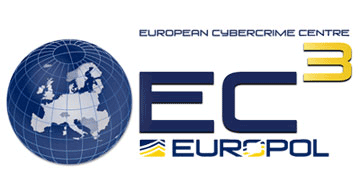Establishing a European Cybercrime Centre
|
In response to the European Commission's communication "Tackling
Crime in our Digital Age: Establishing a European Cybercrime Centre",
the Council of the EU have endorsed the establishment of a new European
Cybercrime Centre (EC3) at Europol in The Hague. The Centre will become the focal point in the EU’s fight against cybercrime, contributing to faster reactions in the event of cyber attacks. It will support Member States and the European Union’s institutions in building operational and analytical capacity for investigations and cooperation with international partners. |
 |
The European Cybercrime Centre will be part of the existing Europol structure to facilitate cross working with other crime areas. The Centre, which will be operational by 1 January 2013, will pool expertise and information, support criminal investigations and promote EU-wide solutions.
In addition to the analytical and operational support already provided by Europol, the European Cybercrime Centre will serve as the European information hub on cybercrime, developing cutting edge digital forensic capabilities to support investigations in the EU and building capacity to combat cybercrime through training, awareness raising and delivering best practice on cybercrime. In addition, the Centre will build a community of experts from all sectors of society to combat and prevent cybercrime and online child sexual abuse.
Cybercrime: A growing global problem
With so much of our everyday communication and commercial activity now taking place via the Internet, the threat from cybercrime is increasing, targeting citizens, businesses and governments at a rapidly growing rate. The EU in particular is a key target because of its advanced Internet infrastructure and increasingly Internet-based economies and payment systems.
The scale of cybercriminal activity represents a considerable challenge to law enforcement agencies and the total cost of cybercrime to society is significant. A recent report suggests that victims lose around €290 billion each year worldwide as a result of cybercrime, making it more profitable than the global trade in marijuana, cocaine and heroin combined.
Joining forces to catch the criminals
Investigations into online fraud, child abuse and other crimes regularly involve hundreds of victims at a time, and suspects in many different parts of the world. Operations of this magnitude cannot be successfully concluded by national police forces alone. No crime is as borderless as cybercrime, requiring law enforcement authorities to adopt a coordinated and collaborative approach across borders, together with public and private stakeholders alike. It is here that the European Cybercrime Centre will add significant value.
Europol is already Europe’s specialist law enforcement centre for operational support, coordination and expertise in cybercrime. The European Cybercrime Centre will provide a more collaborative response in cooperation with:
- key EU stakeholders;
- non-EU countries;
- international organisations;
- internet governance bodies and service providers;
- companies involved in internet security and the financial sector;
- academic experts;
- civil society organisations;
- National Computer Emergency Response Teams (CERTs) and the CERT-EU for European Union
institutions.
"The establishment of the European Cybercrime Centre will be a landmark development in the EU's fight against cybercrime. I am delighted that the Commission has proposed its establishment at Europol. Organised crime groups, terrorist groups and other criminals are quick to exploit the opportunities afforded by developments in technology, and the time is ripe for the authorities to get one step ahead. The European Cybercrime Centre will provide governments, businesses and citizens throughout the Union with the tools to tackle cybercrime. Building on Europol's proven track record and unique expertise in this area, and with the support of the Member States, other EU bodies, international partners, and the private sector, the European Cybercrime Centre will make the EU smarter, faster and stronger in its fight against cybercrime."